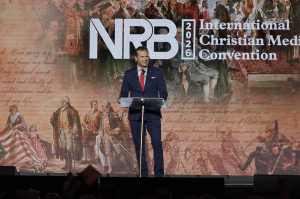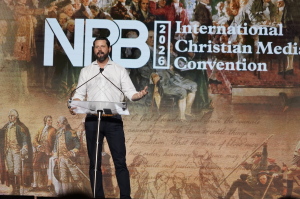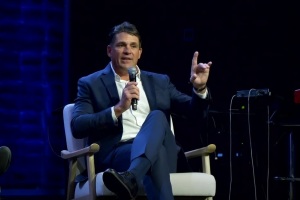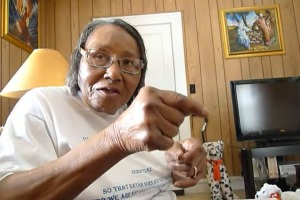Study: Romney's Mormonism May Help More Than Hurt With Voters
While many have speculated that presumptive Republican presidential candidate Mitt Romney's membership in the Church of Jesus Christ of Latter-day Saints may harm his chances to win some voters, few have suggested the opposite. Could Romney's LDS faith help him win more votes? A new study published this month by The Brookings Institution, a left-of-center think tank, suggests the answer may be yes.
"Information about the LDS church and Mr. Romney's affiliation with it poses little threat to his electoral prospects, even among evangelical Christians. In fact, messages about Romney's religion may even boost his support among conservatives," wrote Matthew Chingos, fellow in governance studies at the Brookings Institution, and Michael Henderson, assistant professor of political science at University of Mississippi.
Those who argue that Romney's Mormon faith will hurt his chances in the election mostly point to politically conservative evangelicals, who usually back Republican candidates.
The LDS Church considers itself a Christian denomination, but most evangelicals believe that Mormons are not Christian. LDS theology diverges too far from core Christian doctrine, according to this view. Due to this understanding of the LDS faith, some have wondered whether evangelicals will still turn out to vote for Romney during the general election.
During the nomination contest, evangelicals supported either Newt Gingrich or Rick Santorum, both of whom are Catholic, in most states. Chingos and Henderson point out, though, that evangelical opposition to Romney during the nominating contests may have had more to do with skepticism about his issue positions than his faith. Additionally, election studies have concluded that lack of support for a candidate, of either party, during a nominating contest does not lead to lack of support during a general election.
"First, evangelical Christian reticence to back Romney may have little to do with his religion. Among a group that mostly identifies as conservative, the 44 percent that see Romney as 'not conservative enough' may have policy differences with the Republican nominee, particularly on social issues. If this is the case, then media coverage about his religion would do little to address this policy or ideological divide," Chingos and Henderson explained. "
"Second, decades of election studies show that most partisans who initially hesitate over their party's nominee set aside their differences with the candidate and develop more favorable impressions over the course of the campaign."
Current polling does not account for the fact that voters will likely learn more about Romney and his LDS faith in the months leading to the November election. Since much of the media coverage thus far has been "long on speculation and short on evidence," Chingos and Henderson used an experimental survey to find out what would happen if voters became more educated about Romney and the LDS Church.
They used an online survey of 2,084 respondents who were randomly assigned to four separate groups. Each group was given different information about Romney and the LDS Church and then asked about the likelihood they would vote for Romney. Sixteen percent of the sample were white evangelicals.
The first group was given no information about Romney's faith. The second group only indicated that Romney is Mormon. The third group emphasized the similarities between Mormons and Christians. The fourth group emphasized differences between Mormons and Christians.
They found insignificant differences among conservatives, regardless of what information they were provided. Indeed, among white evangelicals the differences were even smaller than among conservatives. White evangelicals who were provided information emphasizing the differences between Mormons and Christians were only slightly less likely, and within the margin of error, to say they would support Romney.
Additionally, conservatives were actually more likely, by 13-19 percentage points, to support Romney when they learned that he is a Mormon.
Liberals in the sample were no more or less likely to support Romney based upon the information they were provided.
The experiment cannot explain why conservatives are more likely to support Romney when they learn about his religion, Chingos and Henderson admit, but they speculate that the information provides a clue, or "information shortcut," about Romney's political ideology. Since most Mormons are conservative, conservative voters may assume that Romney's ideology is close to their own when they discover that Romney is a Mormon.
The study's results should not be considered definitive, the authors warn, "But they do suggest that concerns over Mitt Romney's 'religion problem' have been overblown and quite possibly miss a compelling counter-narrative."



























